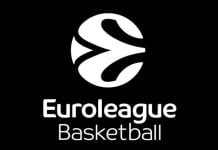First of all, it is not about LaVar Ball, his antics or his family. This is strictly basketball piece, which will remind one more time, that none of that really matters in tough and rough world of European basketball. If LiAngelo and LaMelo sign pro contracts in Europe, they will be tested in all possible ways. And their dad won’t be much help at all.
Different rules, different styles
In the 21st century we still have basketball rules that are far from any unification. College theme is one thing, NBA is another, while Europe and China are totally different worlds. Playing time, number of periods, fouls to give, timeouts, three-point distance, officiating. All these things vary from one place to another, and Europe may be the least friendly spot for young and inexperienced Americans.
Only 40 minutes to play and 4 fouls to operate with are not the biggest issues. Even traveling calls become everyday thing with the time. Defense and teamwork, things that will totally separate those, who can survive in Europe and those, who will probably be better off with G-League or China options.
Average player from good European team is solid on defense, no matter how much work he put in on the offensive end. Team defensive schemes are also the piece of art. That is exactly why total scores of 80, 70 and even 60 points by one team are still well and alive in Europe. And while fast breaks, run’n’gun and isos are not unusual parts of the European game, it’s not common theme either. Even if you’re a star player in any competition, you will most likely saw a limit of 20 points per game. Ask Kristaps Porzingis, Milos Teodosic or Pau Gasol for that matter.
Value of every game
With different competition system, which includes domestic and continental leagues, Europe may be presented as one big welcome sign with “Win or die” written on it. Playoffs here are not only some bonus or vanity prize, it is the key to book yourself tickets to Euroleague, Eurocup or Champions League through domestic championship.
And you have very limited room to achieve that goal here. On average, there are 30-game regular seasons (may vary from 24 to 36) and some leagues even run Final Four format, such as Euroleague, Israeli Premier League or Russian VTB League. Eurocup and Champions League are also unorthodox for American audience. They have group stages with only 10 or 14 games to play before playoffs. In that kind of environment you’ve got to be productive, and there is no room for any big error.
Training hell
Players in Europe train more than they play, that is the absolute truth. While young local Europeans grow through that system, Americans may find it difficult to embrace and adjust to. Training every day is a common thing here. Training twice a day is a norm too. Training the next morning after a losing effort? You’re more than welcome! Shooting practices, tactical practices, gym sessions. It’s all in a day’s work. And if you don’t compiy with it… Well, then you will face another big problem.
Coaches over players
Europe is filled with young and old Gregg Popovichs. Dimitrios Itoudis, Zeljko Obradovic, Pablo Laso, Sarunas Jasikevicius. This is just the elite of European coaching legion, and none of them will be shy to tell any player everything they need to know. Like absolutely everything. And they are top notch pros. Levels down, the same or even worse picture.
Coaching authority in Europe is something every player should reckon with. Some coaches have even more influence than presidents of their clubs. Some coaches may even end player’s relationship with the club. Decent amount of conflicts end up just like that, and with different contracts it’s totally possible. Coaches win these “battles” most of the time.
Fans, very passionate fans
It’s better to see once to understand, how passionate European fans are. This video says it all. Some savvy experienced guys fall under this pressure, imagine kids’ shock.
Good places, bad places, ugly places
And this is when it really can get ugly. While most Euroleague-caliber clubs are filled with professionals from top to bottom (some may even not see a difference between your average NBA franchise), in some places the entire staff could speak the most broken English you’ve ever heard.
Conditions vary dramatically from country to country, from league to league and from club to club. You should be absolutely safe with Euroleague teams, mostly safe with three big European leagues (Spanish ACB, Russian VTB and Turkish BSL). Germany, France, Italy, Greece form solid European middle class. Other places may be not so ready to meet high expectations.
Club’s and league’s status directly correlates with possible exposure a player can enjoy. Biggest leagues have rich TV deals, great social media infrastructure and prominent national press coverage. You go after big stats in small league and you may find yourself playing in a high school gym without a single TV camera. These are all things every American should consider, before signing his European contract.
Ball’s case
And if it wasn’t enough, according to various reports LaVar wants his kids to play together. Absolutely ridiculous offer, considering almost zero chances for LiAngelo to be even a role player in the NBA and the age of his youngest son. LaMelo. Not that a 16-year-old can’t possibly play in Europe, but even Ricky Rubio and Andrei Kirilenko weren’t given any free passes at that age.
To sum up, it’s almost impossible to see any prominent European club taking them both. Here, you need to show results. Here, it’s all about that W column. Here, nobody will care about your global marketing plans. Everybody knows that famous series of “In Soviet Russia“ jokes. It will perfectly fit with European basketball. In Europe, basketball plays you. And nobody is big enough to change it.
Odds, that we’ll see another Brandon Jennings story, when highschooler was able to hold his own against European finest, are slim at best. And it all comes not from some hating scaremongering European journo. It comes from a guy, who has 3 years’ experience working for Russian professional basketball club. And that’s that.














